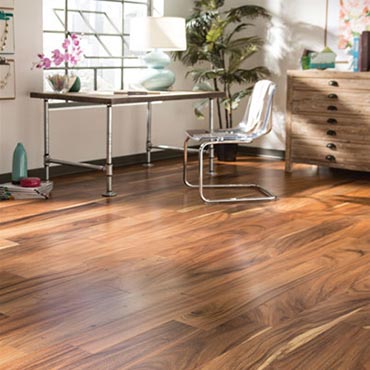Wood Flooring: Hardwood Plank Flooring

Hardwood Plank Flooring: The Timeless Foundation of Modern Interior Design
In the realm of interior design, few elements possess the enduring allure and practicality of hardwood plank flooring. Revered for its natural beauty, resilience, and adaptability, this flooring option has become a staple in modern interior spaces, elevating aesthetics while offering a range of functional benefits. This article delves into the definition, types, and species of hardwood plank flooring, exploring its versatility, durability, sustainability, and its role in enhancing interior environments. Additionally, we'll provide key insights and tips for interior designers, decorators, and design consultants on selecting the perfect hardwood plank flooring for various projects, highlighting its features, benefits, and recent trends in design and material innovation.
Definition and Types of Hardwood Plank Flooring
Hardwood plank flooring is a product made from solid wood planks, milled from a single piece of timber. Unlike engineered wood, which comprises multiple layers of wood veneer, hardwood planks are known for their homogenous composition, which contributes to their strength and longevity. The types of hardwood flooring vary based on the wood species, plank size, color, grain pattern, and finish. Common types include:
- Strip Flooring: Narrow, linear planks that create a uniform, elegant look.
- Plank Flooring: Wider planks that offer a more rustic, spacious feel.
- Parquet Flooring: A mosaic of wood pieces, creating geometric designs for a more decorative approach.
Species of Hardwood
The species of wood used in plank flooring significantly influences its appearance, durability, and cost. Popular choices include:
- Oak: Renowned for its strength, versatility, and distinctive grain.
- Maple: Offers a lighter color with subtle grain patterns.
- Walnut: Known for its rich, dark tones and luxurious appeal.
- Cherry: Valued for its reddish hue and smooth grain.
- Bamboo: Though technically a grass, bamboo flooring is often categorized with hardwoods for its eco-friendly nature and hardwood-like properties.
Versatility and Aesthetics
Hardwood plank flooring's versatility lies in its ability to complement various design styles, from traditional to contemporary. It seamlessly integrates with different color schemes and furniture styles, making it a go-to choice for designers seeking flexibility. Its natural grain patterns and color variations add warmth and character to any space, enhancing the overall aesthetic appeal.
Durability and Maintenance
One of the key attractions of hardwood plank flooring is its longevity. With proper care, these floors can last for decades. They are also relatively easy to maintain, requiring regular sweeping and occasional mopping with a wood cleaner. Moreover, hardwood floors can be refinished multiple times, reviving their appearance and extending their lifespan.
Sustainability
In recent years, the demand for eco-friendly and sustainable building materials has risen. Many hardwood species are sourced from responsibly managed forests, making them a sustainable choice. Additionally, the longevity of hardwood flooring reduces the need for frequent replacements, thereby minimizing environmental impact.
Enhancing Interior Spaces
Hardwood plank flooring adds depth, warmth, and elegance to interior spaces. Its natural elements can make a room feel more inviting and spacious. The color and texture of the wood can also influence the room's ambiance, from cozy and intimate with darker woods to bright and airy with lighter tones.
Tips for Selection and Design Trends
When selecting hardwood plank flooring, consider the following:
- Room Usage: Choose harder woods for high-traffic areas.
- Color and Grain: Match the wood's color and grain with the room's overall design theme.
- Plank Width: Wider planks suit larger spaces, while narrower strips work well in smaller areas.
- Finish: Matte, glossy, or hand-scraped finishes offer different looks and maintenance levels.
Recent trends in hardwood plank flooring include wider and longer planks for a modern, expansive feel, rustic and distressed finishes for character, and the use of reclaimed wood for an eco-conscious, vintage look. Additionally, innovative treatments such as thermal modification are enhancing wood's durability and moisture resistance, expanding the applications of hardwood flooring.
Conclusion
Hardwood plank flooring remains a cornerstone in modern interior design, revered for its beauty, versatility, and durability. For interior designers, decorators, and consultants, understanding the nuances of this material is crucial in creating spaces that are not only visually stunning but also functionally robust and sustainable. As trends and technologies evolve, hardwood flooring continues to adapt, maintaining its status as a timeless choice for interior environments.
Brand Overview


Mannington Hardwood Flooring
Profile | Website | Warranty | Install | Maintain | Green
ManningElegance engineered for superior performance. Engineered Hardwood flooring is real hardwood - the word “engineered” just refers to the way in which it’s made. And there are many benefits to choosing an engineered product over a solid product.
.jpg)
















